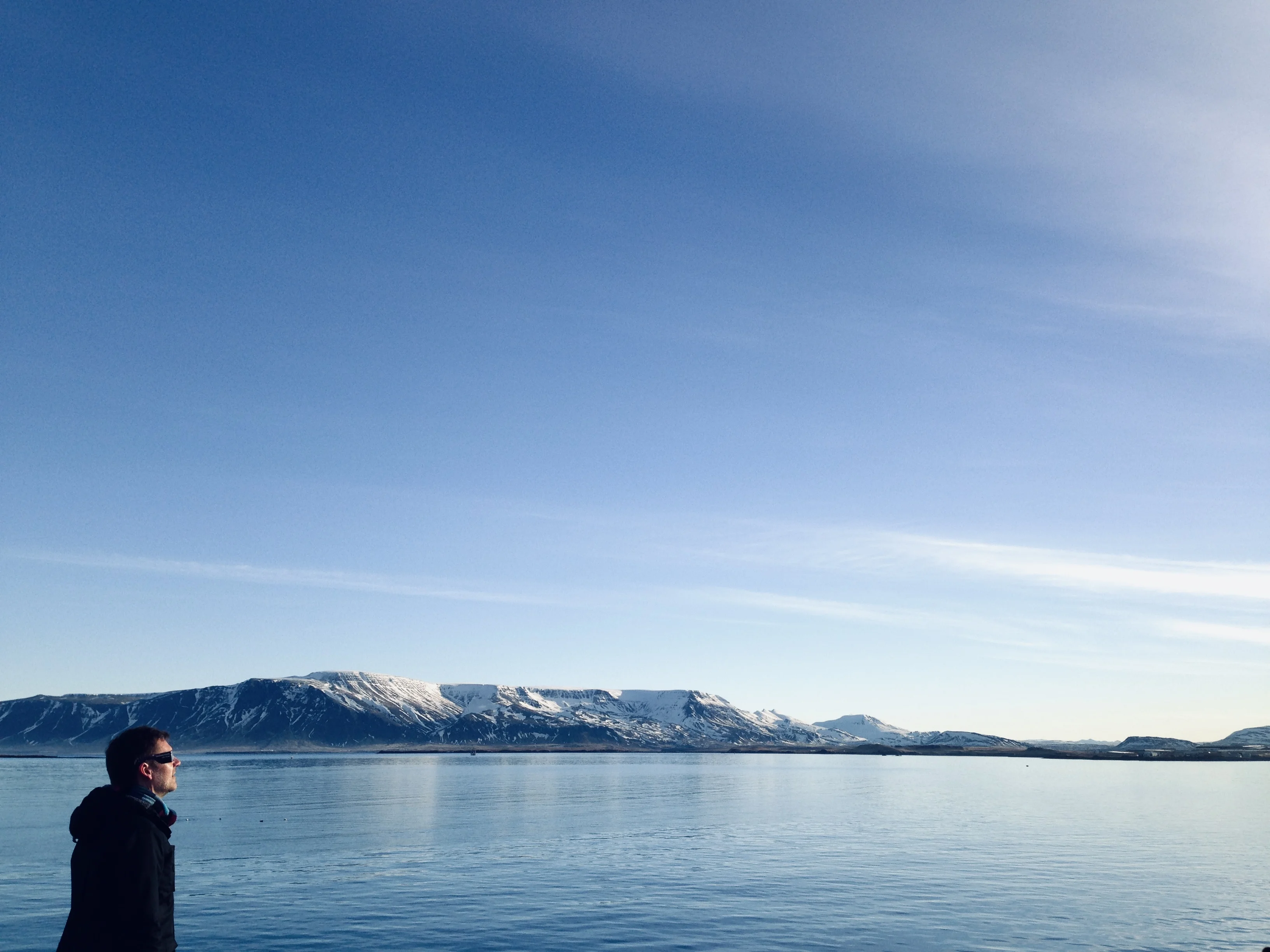
16/08/2025
The next solar eclipse is coming
The sky darkens: My Iceland experience during the solar eclipse in March 2015
I remember it clearly. It was more than 10 years ago: I am standing on the shore of the bay in Reykjavik. Very close to the sculpture Sun Journey by Jón Gunnar Árnason. The wind whistles around my ears, the air is cold, the light is clear. We wait, talk, freeze in eager anticipation, and then suddenly an unreal calm descends on everything. The sky darkens as if someone had found the dimmer switch. The temperature drops, the seagulls fall silent. I stood there, completely blown away. No one says a word. There it was: the sun's corona. Pastel, luminous, almost fragile. Minutes that felt like an eternity. Since then, I have known that a solar eclipse is not just an ‘astronomy thing’. It is an event.
How exciting that the next two solar eclipses are coming up: the first long shot touches on the Arctic region in 2026, then Greenland and Iceland, before crossing Portugal (northeastern tip) and northern Spain. Spain is at the end of the path of totality, with totality occurring close to the horizon shortly before sunset. This is precisely what makes the atmosphere so dramatic (and the choice of location so important): on 12 August 2026, the time will have come: a unique ‘golden hour’ totality in Iceland and also in Spain.
Based on my experiences and many travels, I recommend Iceland, and the Snæfellsnes peninsula with Búðir in particular. This is where Jules Verne has his characters set off for the centre of the Earth and re-emerge at Stromboli. My tip for accommodation: the Hotel Búðir in Búðir, a house between lava fields and the sea with a view of Snæfellsjökull. Of course, Spain also has wonderful things to offer during this time.
The second major event, a spectacularly long total solar eclipse lasting more than 6 minutes, awaits us in August 2027 in Luxor and Andalusia. It will be a celebration in the truest sense of the word: a “galactic spectacle”. Preparations for travel recommendations are in full swing...
Now, in order, here are my personal tips and recommendations:
12 August 2026 Solar eclipse in Spain & Iceland
In Spain, the totality will move from west to east, passing over A Coruña, Oviedo, León, Bilbao, Zaragoza, Valencia and the Balearic Islands (Palma), among other places. Because the sun is very low, you need a clear view of the western horizon, otherwise trees, houses and hills may obscure the show.
Special feature: The eclipse coincides with the Perseids, the night-long meteor shower, promising to be extremely attractive.
A tip for those staying at home: After all, the eclipse will be partially visible in Germany in 2026. That's nice too, but for a total solar eclipse, it's definitely worth the trip.
My event and travel tips:
- From 12 to 15 August 2026, the Iceland Eclipse Festival will take place in Hellissandur on the Snæfellsnes Peninsula: four days of music and art, centred around the total solar eclipse.
- The Queen Mary 2 will make a longer stop in Reykjavik on its transatlantic voyage from Southampton to New York for the solar eclipse. On 12 August 2026, the ship will stay overnight in the city's harbour, giving you plenty of time to experience the special atmosphere. The trip is available here, bookable from 4 August to 18 August 2026 LINK.
The best locations in 2026, apart from Iceland:
Spain: Look for places with a deep, unobstructed west/northwest horizon (e.g. plains in Castile-León or hilltops in Soria/Burgos).
The effect at sunset is magnificent, but the line of sight determines whether it's a ‘wow’ or a ‘miss’.
2 August 2027 Solar eclipse in Andalusia & Luxor
The next highlight comes just one year later: the path of totality crosses the Strait of Gibraltar; in Andalusia (including Cádiz, Tarifa, Gibraltar, Málaga coast), you will experience several minutes of darkness in the morning. In parts of Ceuta, totality will even last nearly five minutes.
The highlight of this eclipse is in Egypt: around Luxor, there will be 6 minutes and 22 seconds of total darkness, an exceptionally long duration in the statistically extremely clear summer sky.
My tip:
- Luxor is astronomically and culturally stunning, combine it with a Nile cruise or a desert night under the stars.
- In Andalusia, on the other hand, you can experience the darkness amidst Andalusian joie de vivre, perhaps with a glass of sherry in Cádiz and flamenco in the evening.
- Expect lots of visitors, so book early, secure your spots and allow extra time for travel.
- Book your accommodation and transport early. Places like Oviedo, Bilbao, Zaragoza, Valencia and Palma offer spectacular spots – feel free to ask me for more information.
Photo tips
Partial phases: Put on a solar filter, focus manually, test short exposures.
Totality: Remove the filter, use exposure bracketing (e.g. 1/1000 s to 1 s), use a tripod. Enjoy first, then take pictures.
Safety first:
Only look at the sun with ISO 12312-2 certified sunglasses.
If you stay at home
Both dates (in 2026 and 2027) are partially visible here. If you want to see totality, you should travel. It's worth it, I'm absolutely certain of that.
Solar eclipse 2015 - 2026 - 2027
More than a decade lies between my unforgettable Iceland moment and the upcoming solar eclipses, yet I feel as if it were yesterday. Those rare minutes under a changed sky were brief and yet so intense that they remain unforgettable.
And that's exactly what we at Music Travel Hideaways are here for: to make these moments and experiences comfortable and easy for you and turn them into an overall experience.
You can find more information on my website Music trips to Iceland: Iceland – Snæfellsnes Peninsula and under Europe – Iceland.



